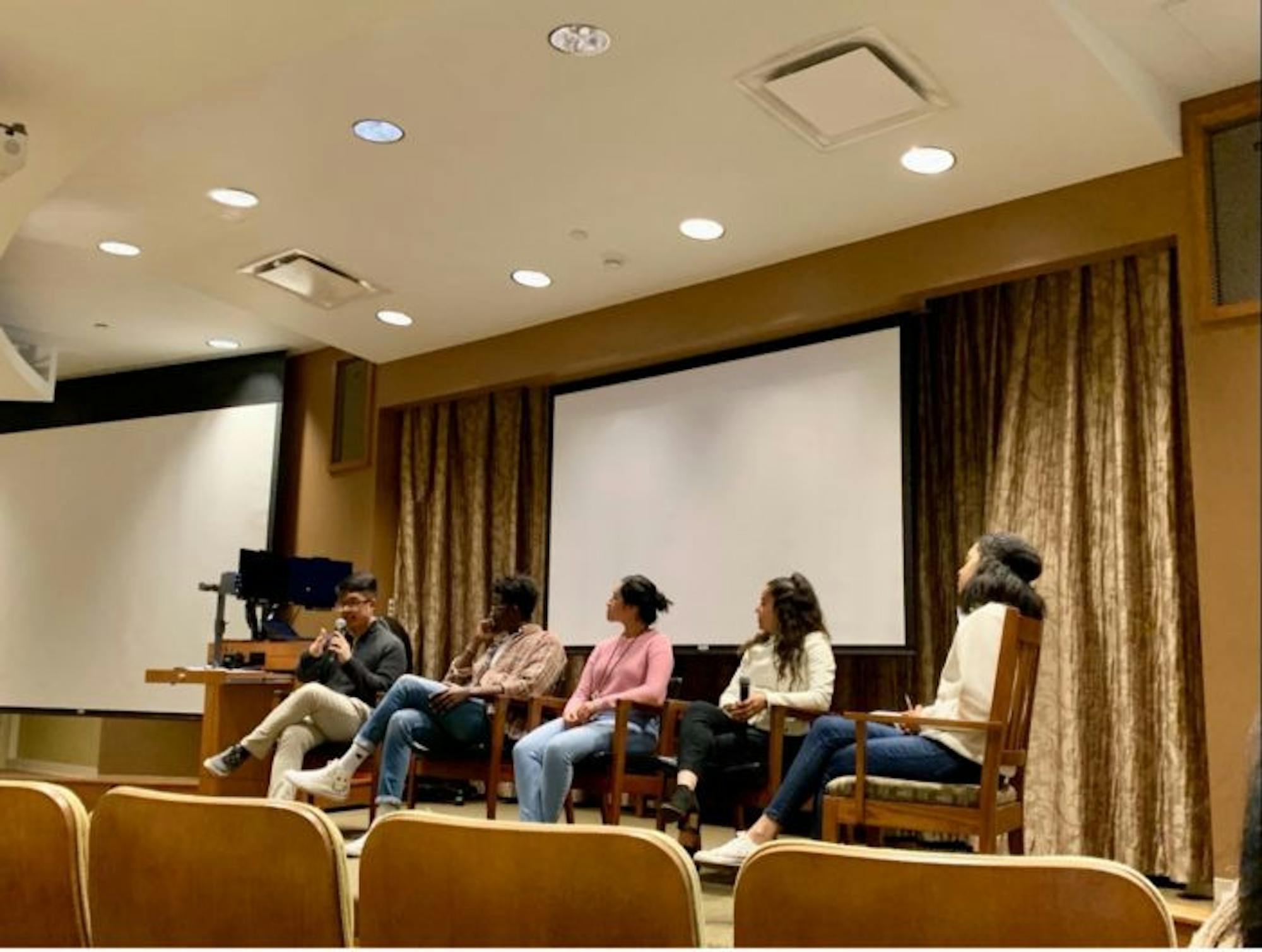Notre Dame’s Office of Student Enrichment (OSE) hosted a panel Wednesday evening in Geddes Hall entitled “I Belong: Life During and After ND” featuring both current students and alumni. It is part of Notre Dame’s observance of First-Generation, Low-Income Week.
The discussion delved into topics such as sense of belonging, identity and budgeting as a college student. The panelists were admissions counselor Eric Kim ’20, director of retail dining Sandra Garcia ’09, student body president senior Allan Njomo and resident assistant Marilyn Zizumbo.
The panelists shared anecdotes of their experiences throughout their years at Notre Dame and offered recommendations on how students can make the most of their undergraduate experience.
When speaking about sense of belonging, the panelists mentioned struggles during their first few months on-campus and the challenges they faced before feeling a sense of belonging in the Notre Dame community.
Zizumbo, a resident assistant at Johnson Family Hall, shared how she transferred resident halls during her sophomore year and how she managed to find support in the Latino community, with events such as the Latino First-Year Retreat.
“I built a strong support system that also gave me life,” Zizumbo said. “... The important thing is to find a community where you can give but also receive back.”
On the contrary, Njomo shared positive anecdotes about his residential life experience, such as being able to build a relationship with his rector even before arriving at Notre Dame. However, he said he did not feel much support when it came to the classroom.
“I felt like I had to represent my identity as well as I could, and it was difficult to not feel confident enough to answer questions or even ask questions,” Njomo said.
Panelists also had the opportunity of reflecting on the transition from being an undergraduate student to life after graduation.
Kim shared that he felt it was an easy transition, even though he didn’t have the closure of an in-person graduation in May 2020 due to the pandemic. He said what he felt was most important was the support of his supervisors in his transition to becoming a Notre Dame employee.
Garcia advised current students to do much self-exploration, such as taking classes geared toward their interests. She also said it is important to create genuinely deep, meaningful relationships that will last after graduation.
“You are still going to end up where you have to be, but use this time to enhance those skills and do things that bring you joy,” Garcia said.
The main challenges the panelists said they faced coming from low-income families was developing their budgeting skills. They spoke about finding a balance between spending on needs and spending on wants.
Zizumbo gave advice about creating separate funds for different needs.
“Invest in the wants, but do it intentionally, and set up a separate fund to save up for that dorm decoration that will help you have a comfortable place on campus,” Zizumbo said.
Njomo emphasized being honest with one’s self and others.
“Be honest about not being able to afford things,” Njomo said. “... It is refreshing for people to hear those things and it changes the perspectives of people around you.”
The panelists mentioned the importance of maximizing other opportunities through resources such as those offered by the Kellogg Institute, the Notre Dame International programs, the University Counseling Center and the Office of Student Enrichment.
They also acknowledged the struggles of asking for things and applying for grants; however, they insisted that undergraduates take advantage of both University resources and alumni networks.
“Educate yourself in the resources available and utilize the one that feels right for you,” Garcia said.
The last piece of advice the panelists offered was to believe in yourself.
“There’s no one else like you that has the experiences that you have and the perspectives that you have,” Zizumbo said.













